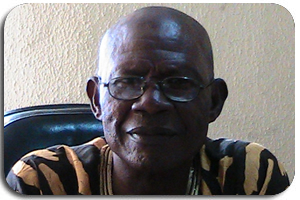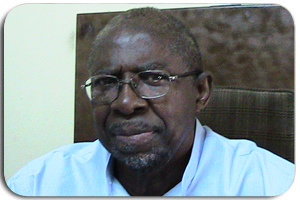Nigeria confirmed its importance to the global petroleum economy in 1971 with its entry into OPEC and hasn’t looked back. According to OPEC’s 2008 figures, Nigeria exports about $76.8 billion worth of goods, with petroleum exports comprising $74.7 billion of that figure.
Production rates are just over 2 million b/d, with most of that exported, and 32.8bcm of marketed natural gas production, with 20.5bcm exported. The country has around 37.2 billion barrels of crude oil reserves and 5.2 tcm of natural gas reserves.
Beyond that, operators seem to be frequently reporting finds in the deepwater area offshore Nigeria, which will drive those figures up.
The country is ranked seventh globally in terms of proven natural gas reserves, although much of that lies in environmentally-sensitive Niger Delta. Security has become a watchword for the Niger Delta, home of the Movement for the Emancipation of the Niger Delta (MEND), a militant group that has been linked to attacks on foreign-owned petroleum companies in Nigeria.
As petroleum is such a large part of the country’s economic base, the government has been working to stop attacks in the region. Part of those efforts included a ceasefire and an offer from the government of amnesty. The amnesty program offered monetary support to help members of MEND and other Niger Delta militant groups finance a new life and seek lawful employment.
The government is working to ensure the country receives its dues from the petroleum riches that lie within its borders and maritime limits. It is considering a Petroleum Industry Bill, backed by President Umaru Yar’Adua and his successor Dr. Goodluck Jonathan, that would restructure state-owned Nigerian National Petroleum Corporation as a for-profit company. The bill also would redistribute un-produced fields that are under permit to foreign oil companies, raise taxes and royalties, and increase employment of Nigerians in the sector. The country itself has about 150 million inhabitants, which provides a large pool from which to draw local talent.
The Nigerian government set goals for local content of oil projects at 70% by 2010. During their bidding process, petroleum companies must include a Nigerian content percentage as part of the bid. Companies operating in Nigeria have several ways they pave the path toward local content, but they all point to experience-building through hiring and training indigenous employees, education through providing scholarships, or a combination of the two.
THE LOCAL CONTENT POLICY
Definition: Nigerian Content is the quantum of composite value added or created in the Nigerian economy through the utilization of Nigerian human and material resources for the provision of goods and services to the petroleum industry within acceptable quality, health, safety and environment standards in order to stimulate the development of indigenous capabilities.
Objectives: to address the situation, the Federal government has set Nigerian Content targets for the oil and gas industry of 70% by 2010. In addition, presidential directives have been issued with the aim of domesticating a significant portion of economic derivatives from the oil and gas industry. To deliver on these directives and targets, the Nigerian National Petroleum Corporation (NNPC) has put in place a comprehensive Nigerian Content development strategy currently being rolled out in the industry.
NNPC’s Vision for Nigerian Content: is to transform the oil and gas industry into the economic engine for job creation and national growth by developing in-country capacity and indigenous capabilities. In this way a greater proportion of the work will be done in Nigeria with active participation of all sectors of the economy and ultimately Nigeria will be positioned as the hub for service delivery within the West African sub-region and beyond.
Nigerian Content Opportunities: Both foreign and Nigerian investors, either solely or in partnership, have the opportunity to participate actively and effectively in all the facets of the industry and not just as suppliers of peripheral services, particularly as E & P operations expand towards the deep offshore and the Gulf of Guinea.
Legal, regulatory and institutional structures and mechanisms to drive the actualization of the local content programme are being put in place.
THE OIL REFORM
The Oil Reform starts with the Petroleum Industry Bill, an Act aim to establish the legal and regulatory framework, institutions and regulatory authorities for the Nigerian petroleum industry, to establish guidelines for the operation of the upstream and downstream sectors, and for purposes connected with the same.
The reforms would break up the state-run Nigerian National Petroleum Corporation (NNPC) to create a commercial national oil company and seven independent regulatory agencies, establish a new licensing and taxing regime for oil and gas exploration and production, and incorporate existing joint ventures as individual companies. The bill would also promote the domestic gas market and grow the local energy industry through local content directives and marginal field programs.
The bill will make the national oil industry more transparent, encourage investment and help the country build its energy infrastructure.
The reforms is aimed to help indigenous companies expand their businesses.
AMNESTY PROGRAM IN THE NIGER DELTA
President Umaru Yar’Adua, who came to power in May 2007, helped broker a ceasefire with militants before illness sidelined him in November 2009. And today the new president Goodluck Jonathan has continued Yar’Adua’s policies on both the security front and in pushing for the PIB’s passage.
Renewed fighting would be a major setback for Jonathan, who has made security in the Niger Delta a top priority. The government is genuinely committed to solve the Niger Delta crisis.
OPPORTUNITIES IN THE SECTOR
Foreign and domestic investors are being encouraged to participate in the Nigeria oil and gas sector, both in the Upstream and Downstream sectors, the following are some of the areas where there are pressing needs for investors.
UPSTREAM ACTIVITIES
- Petroleum Exploration and Exploitation
- Search for development of local substitute for such items as Medium pressure valve, pumps, shallow drilling equipment, Drilling mud, bits fittings, drilling cements etc.
- Manufacturing of consumable materials in exploration such as explosives, detonators, steel castings, magnetic tapes etc.
- Other areas in the services sector of the upstream are:
1. Construction and Installation
2. Maintenance
3. Pipelines
4. Well Services and
5. Transportation Support Services.
DOWNSTREAM ACTIVITIES:
- Domestic Production and marketing of Liquefied Petroleum Gas (LPG)
- Manufacturing of LPG cylinders, valves and regulators, installation of filing plants, Retail distribution and development of simple, flexible and much less expensive gas burner to encourage the use of gas instead of wood and other fuels.
- Establishment of processing plants and industries for:
1. The production of refined mineral oil, petroleum jelly and grease.
2. The manufacture of bituminous based water/damp-proof building materials such as roofing sheets, floor tiles, rubber products, tarpaulin. Building of asphalt storage, packaging and blending plants to handle the product for export.
3. Establishment of chemical industries such as distillation units for the production of naphtha and other special boiling point solvents used in plant and other food processing industries.
4. Establishment of industries for processing Linear Alkyl Benzene, Carbon Black and Polypropylene.
5. Development of Phase II (Phase III to join later) of Nigeria’s Petrochemical Programmed.
6. Participation in all phases of the Nigeria Gas Industry development programmed from exploration, gathering, production and processing to transmission.
7. Establishment of small scale industries to produce chemicals and Solvents, for example Chlorinated methane, Formaldehyde, Acetylene, etc., from natural gas.
8. Refining: One condition for purchasing Nigerian Crude Oil is the ownership of an efficient refinery. The shelter which the domestic petroleum products market enjoys, almost completely seals the prospects and viability of privately financed refinery for locally consumed petroleum products. However, opportunities exist for the construction of a refinery in bonded premises with adequate export facilities for dedication to the export market. Companies with the technological know-how can undertake turn-around maintenance of refineries. Refineries consume a lot of chemicals and utilize a broad range of spare parts. There is tremendous scope for small scale joint venture manufacturing concerns with foreign technical partners. Such ventures can start warehousing arrangements that will ensure continuity of supply at competitive prices. Other investment opportunities contingent upon refining and ancillary activities are the manufacture of special products such as:
- Industrial and food grade solvents
- Insecticides
- Cosmetics
- Mineral Oil, petroleum jelly grease
- Bituminous-based water/damp-proof building materials such as floor tiles, rubber products, tarpaulin, etc., and
- Asphalt storage, packaging and blending plants to handle products for export and local use. Export of refined products surplus also exists as an opportunity in refining.
9. Products Marketing: Petroleum Product Marketing would seem sealed with hardly any opportunity except by way of establishing an independent marketing outfit or aspiring to establish dealership with the marketers.
While indeed those opportunities remain viable, far more challenging opportunities may be explored in the areas of product transportation, by road and coastal tankers.
Associated with products distribution and marketing is a chain of manufacturing and maintenance business such as lubricating oil reprocessing, LPG bottles and accessories, oil cans reconditioning, etc.
The nation’s pipeline and depot network consists of 3,001km of pipeline of varying sizes as well as sixteen (16) storage depots. These pipelines and networks traverse the length and breathe of the country. The system therefore must be maintained in a healthy state for effective and efficient distribution of products.
 Mr Tunde OdunlamiManaging DirectorBint and Prathel Limited Mr Tunde OdunlamiManaging DirectorBint and Prathel Limited |  Mr Davidson AkhimienManaging DirectorKinG David Mr Davidson AkhimienManaging DirectorKinG David |  Mr Rowaye JubrilCEO of Energy Factor Marine Oil Services LimitedEnergy Factor Marine Oil Services Limited Mr Rowaye JubrilCEO of Energy Factor Marine Oil Services LimitedEnergy Factor Marine Oil Services Limited |  Mr. Luis MeraManaging DirectorHalliburton Mr. Luis MeraManaging DirectorHalliburton |
 Mr Chukwuanugo OguonuManaging DirectorSONO NIGERIA LIMITED Mr Chukwuanugo OguonuManaging DirectorSONO NIGERIA LIMITED |  Mr. Keem BakareCEOBaklang Group Mr. Keem BakareCEOBaklang Group |  Mr. Ayodeji KarimManaging DirectorCostain West Africa Mr. Ayodeji KarimManaging DirectorCostain West Africa |  Mr. Elias NkemjikaManaging DirectorCALIBRATE INSPECTION SERVICES LTD Mr. Elias NkemjikaManaging DirectorCALIBRATE INSPECTION SERVICES LTD |
 Mrs. Olayinka Olagbaju And Michael FalaseManaging Director and COOHP ENERGY LIMITED Mrs. Olayinka Olagbaju And Michael FalaseManaging Director and COOHP ENERGY LIMITED |  Dr. Titus OkerekeChairman & CeoHonikomb Nigeria Limited Dr. Titus OkerekeChairman & CeoHonikomb Nigeria Limited |  Mr. Ken EteteDirectorCentury Energy Services Limited Mr. Ken EteteDirectorCentury Energy Services Limited |  Ethe FidelisPrincipal PartnerLamboghini Inc. Limited Ethe FidelisPrincipal PartnerLamboghini Inc. Limited |
 Chesney Hotels LTDHotels Chesney Hotels LTDHotels |  Marine Platforms LimitedOil and Gas Services Marine Platforms LimitedOil and Gas Services |  Baklang GroupOil and Gas Services Baklang GroupOil and Gas Services |  Energy Factor Marine and Oil Services LimitedOil and Gas Services Energy Factor Marine and Oil Services LimitedOil and Gas Services |
 Popham Walter Odusote LimitedConstruction and Civil Engineering Popham Walter Odusote LimitedConstruction and Civil Engineering |  KinG David Security LimitedSecurity KinG David Security LimitedSecurity |  Sono Nigeria LimitedOil and Gas Services Sono Nigeria LimitedOil and Gas Services |  Bint and Prathel LimitedOil and Gas Services Bint and Prathel LimitedOil and Gas Services |
 Geo Fluids PlcOil and Gas Services Geo Fluids PlcOil and Gas Services |  Halliburton Energy Services Nigeria LtdOil and Gas Services Halliburton Energy Services Nigeria LtdOil and Gas Services |  Costain West Africa PlcConstruction and Civil Engineering Costain West Africa PlcConstruction and Civil Engineering |  Calibrate Inspection Services LtdOil And Gas Inspection Agent Calibrate Inspection Services LtdOil And Gas Inspection Agent |
 Hp Energy Nig. LtdOil Trading Hp Energy Nig. LtdOil Trading |  Century Energy Services LimitedOil and Gas Services Century Energy Services LimitedOil and Gas Services |  Honikomb Nigeria LtdEnvironmental Services Honikomb Nigeria LtdEnvironmental Services |